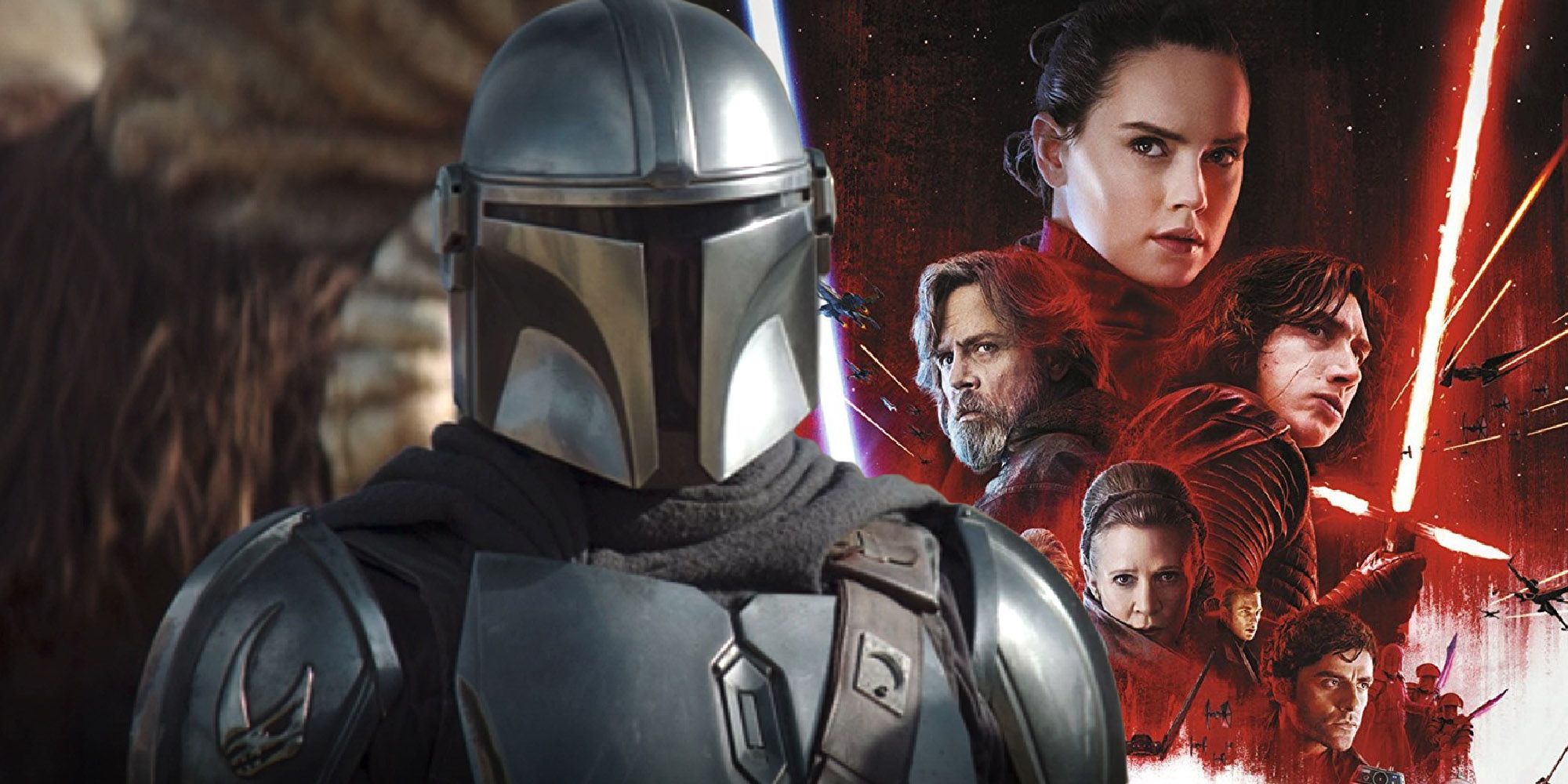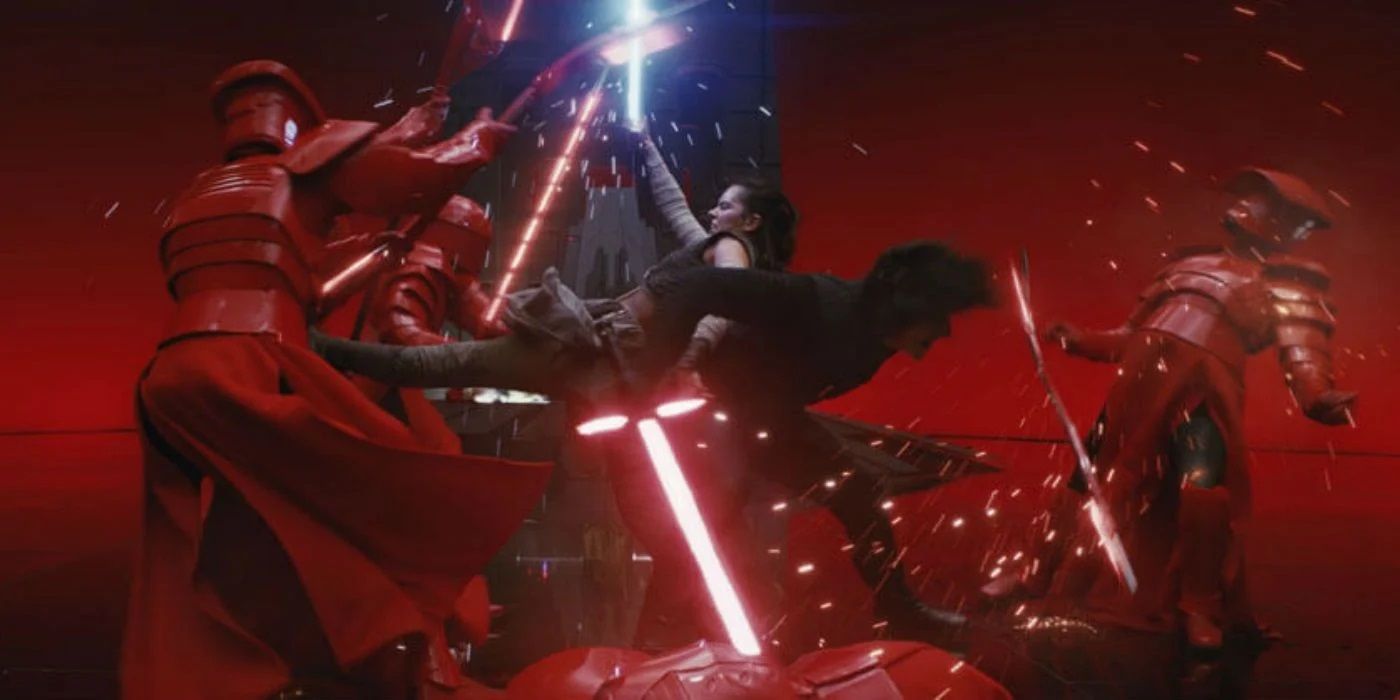
The Mandalorian and Star Wars: The Last Jedi have each polarized audiences over the years, but this doesn't make it impossible to love them both. The Mandalorian's second season finale brought Luke Skywalker back to take Grogu off to begin his Jedi training. As expected, this reveal delighted some and upset others. It also serves as an important reminder that Star Wars fans can remain loyal to the nostalgia of the past and still enjoy the new directions the franchise is bound to explore.
Like The Mandalorian, aspects of 2017's The Last Jedi will likely be debated for years. The middle film of the sequel trilogy became the most polarizing because it doesn't follow the tried and true Star Wars formula. Some of the most divisive storylines of Star Wars: The Last Jedi included Rey's anonymous parentage, Snoke's death, Luke's Jedi-turned-curmudgeonly-hermit portrayal, and Canto Bight's introduction, among others. On the other hand, a number of fans appreciated that it was more daring than other Star Wars films. And others loved the look and sound design of The Last Jedi - the bright pops of color and the sudden silence in the wake of the Holdo Maneuver. They also appreciated Force Ghost Yoda's powers, the climatic throne room battle, and Luke's ending. But that's the inherent beauty of the expanding diversity of Star Wars fandom.
For many long-time fans of Star Wars, these moments show that they don't have to sacrifice their love for something starkly new like The Last Jedi or the warm and familiar nostalgic strains of The Mandalorian - they can enjoy both equally without compromise. A number of critics, both professionals and fans alike, said The Force Awakens borrowed too much from A New Hope, but others felt The Last Jedi was too divergent, wasn't in service of the fans, and didn't deliver on pressing questions from The Force Awakens. It may have felt like a different film because of Rian Johnson's direction, but it still sought to marry the old with the new, dive deeper into established characters' psyches while expanding secondary characters' journeys, and double-down on the fallacy of the Jedi. Conversely, The Mandalorian was able to thread the needle of balancing both and earned most fans' approval because it had a complete and realized narrative arc by the end of season 2. It explores new worlds and keeps fans interested with the parent-child dynamic between Din Djarin and Grogu. It feels familiar and yet new, which stems from Lucasfilm's renewed commitment to thoughtful planning.

Lucasfilm/Disney is the primary cause for all the Star Wars love and hate. The most recent sequel trilogy wasn't as successful as it could have been because the studio did not have a complete and thorough vision of the narrative arc of the films. Every film had a different screenwriter, which disrupted the pace and intent of the previous film. If there had been more collaboration between the writers and or if one person had been responsible for penning or even directing the trilogy, Lucasfilm and The Last Jedi would have probably not have attracted the amount of ire they did. The Mandalorian has earned more praise because it features clear and consistent storylines, written primarily by Jon Favreau.
Star Wars fans don't need permission to love both The Mandalorian and The Last Jedi. Plenty of elements exist in both that cater to individual interests and expectations. No one should need to defend their preferences. Nostalgia and forward-thinking go hand in hand, especially when each is executed faithfully and with proper attention, care, and writing.
from ScreenRant - Feed https://ift.tt/38xsuuf


0 Comments